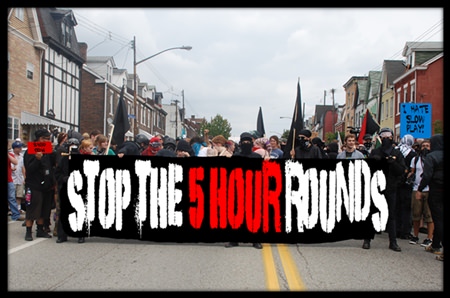Sunday 16 March saw the conclusion to the PGA Tour’s Tampa Bay Tournament. Australian John Senden claimed his second PGA tour victory by a single stroke over American Kevin Na. Senden’s well-deserved victory, however, had some limelight taken away by the attention paid to the notoriously slow Na.
Na’s prominent position on the weekend’s leader board reminded viewers the PGA Tour still has serious slow-play issues. The caddie of Robert Garrigus, Na’s playing partner for the last two rounds, Brent Henley, told Golfweek, “It ain’t fair playing with Kevin Na. It ain’t fair. His pace of play put my guy off his rhythm.” This followed both players receiving a bad time by rules officials on the 13th hole on Saturday. It was Garrigus’s first in 17 years on tour.

Slow play issues soared into the headlines during last year’s Masters, when 14-year-old Chinese, Guan Tianlang, received a slow-play penalty from English referee John Paramor. Luckily for tournament officials, the one-shot penalty didn’t mean Tianlang missing the weekend – he came in right on the cut-line.
What Tianlang did was to run afoul of the system used by timers once a group has received a “bad time.” Seasoned pros would have sped up during the period they are on notice, and then revert to their slow-play habits once they are off the clock.
Slow play is a huge problem for golf, with professional rounds routinely taking five-and-a-half hours plus. But when it came to providing a high-profile penalty, it was a 14-year-old Chinese school-boy who got hit.
Open Champion in 2001, and ex world number-one, David Duval, took to twitter immediately after the penalty was announced. Duval said what many were thinking when stating, “It was unfortunate that Guan received the penalty because there are many other slow-playing professionals, including Tiger Woods and Jim Fuyrk.”
Duval went on to say, “The only way to deal with slow play is simple. Give the rules officials the ability to time players without warning them. Most slow players know how to beat the system. They fall behind, get timed, so they speed up. Back in position and they slow back down.
“We all know who they slow players are. Maybe the commentators should be calling them slow instead of deliberate.
“Who’s the slowest? Hard to say. Crane, Simpson, Na are pretty slow. Tiger isn’t the fastest. Nor is Furyk for the big names. Harrington is pretty bad.
“It’s a shame it’s coming to light again involving the kid. I do wish it had happened to one of the known slower players. Funny that some are mad about saying the names of slow players. Everybody in golf knows who the slow players are.”
According to the US National Golf Foundation, the number of rounds played in the US has been on a steady decline for the last 12 years. In the year 2000, roughly 518,000,000 rounds of golf were played in the US. By 2005 that number had fallen to 499,000,000. In 2011 there were about 463,000,000 rounds, down from 475,000,000 in 2010. And the main reason? Slow play – many players had had enough.
But first we need to understand what slow play is. There are players whose aggregate time spent on the course is long, but their actual pace of play is not slow. And there are players who take longer than most over their shots, but spend less total time completing their round.
Golf experts used to say a round should take less than three hours. Malcolm Campbell, a Fife-based golf author and a member of the R&A, stated recently, “There is no doubt that a round of golf is much slower than it used to be. Slow play has become the curse of the modern game and people should be told that if they can’t get through 18 holes in three-and-a-half hours then they should make way for those who can. Not being able to play well enough is not an excuse. Improve, or get off the course.” A tad harsh, especially for Pattaya, but a considered view nonetheless.
Many look to our role models and blame them – the professionals – however Tim Finchem, PGA Tour Commissioner, would reply, “If I’m watching a PGA Tour player, and I’m going to go through the same pre-shot routine that that player takes, and he’s hitting it 69 times and I’m hitting it 93, I’m going to be playing a lot longer than that guy.”
Irrespective of whatever defence Commissioner Finchem offers, no reasonable person can defend the pace of play employed by the likes of Fuyrk, Harrington, Crane, Simpson, Woods and, as this last weekend has reminded us, Kevin Na.
Golf administrators, the world over, really need to get this right.
Next week: Slow Play in Pattaya.
Happy golfing,
Golfnutter




